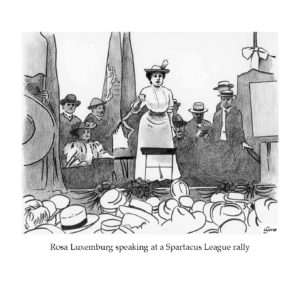
Today prominent political leaders are calling themselves socialists, but even if the terms “socialist” and “democratic socialism” are being used, it is often unclear what exactly is meant by these terms and what kind of political projects they embody. In . . .
Read more ›

For too long, the radical left has framed debates about reform and revolution in terms bequeathed to us from an era very unlike our own. At the expense of soberly and concretely analyzing the conditions socialists face today in advanced . . .
Read more ›

Norman Thomas was the most prominent spokesperson for the Socialist Party of America in the 1930s and 1940s. He ran six times for president on the SP ballot line. Recently, an article by Seth Ackerman of Jacobin magazine argued that . . .
Read more ›
Summer 2019 (New Politics Vol. XVIII No. 3, Whole Number 67)
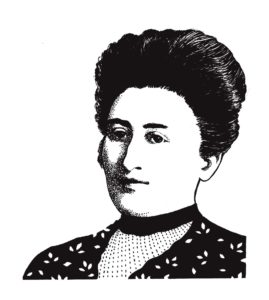
Rosa Luxemburg’s Legacy
Rosa Luxemburg was a brilliant Polish/German revolutionary socialist theorist and political activist. Thoroughly committed to socialism from below, she believed in the necessity of radical class struggle principally in order to build the experience and capacities of the working . . .
Read more ›

Published as “Letter to My Arab Readers” for the new translation into Arabic, Cairo: Arweqa Institution for Studies, Translation, and Publishing, 2019, translated by Hisham Rouhana.
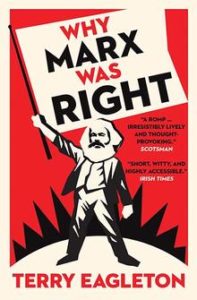
This blog post is based on a presentation on chapters 2 and 8 of Terry Eagleton’s Why Marx Was Right to the Lower Manhattan DSA Branch Political Education meeting, May 14, 2019.
Milton Berle, the 1950s television comic superstar, had a . . .
Read more ›
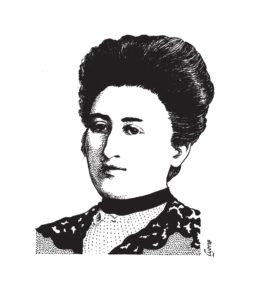
One hundred years after the murder of Polish-German revolutionary socialist Rosa Luxemburg, are any of her ideas relevant for people today who want to transform society to achieve social and ecological justice? I believe the answer is yes. In spite . . .
Read more ›
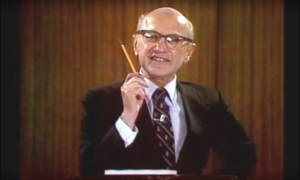
In his scathing, Sturm und Drang takedown of the 1851 French dictatorial coup, The 18th Brumaire of Louis Napoléon, Marx remarks that history repeats twice: “the first time as tragedy, the second time as farce.” Thus when Luther pit himself . . .
Read more ›
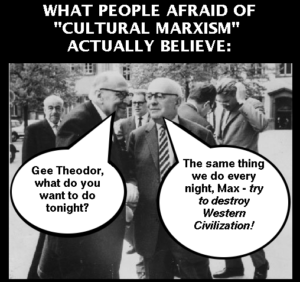
What is Post-Modern Conservatism: Essays on Our Hugely Tremendous Times is going to be released later this year by Zero . . .
Read more ›
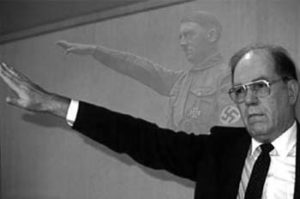
When Lyndon LaRouche’s disciples began setting up literature tables at American airports in the late 1970s, his conspiracy theories were already in full bloom, though not yet widely known. The same might be said about his claim to the title . . .
Read more ›
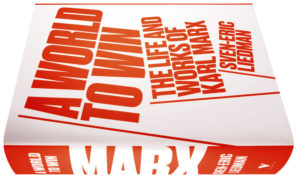
A World to Win: The Life and Works of Karl Marx
By Sven-Eric Liedman
Translated by Jeffrey N. Skinner
Part of the Marx 200 series
Verso Books, 2018, 768 pages, $40 hardcover.
Amid an outpouring of discussion and new works marking the bicentennial of Karl . . .
Read more ›

Berkeley (California) was probably a unique political-cultural milieu in the U.S. in the 1960s, both before and after 1968. It was part of the larger political-cultural scene of the San Francisco Bay Area from 1945 onward. The Bay Area at the time was a relative backwater in the U.S., compared to the East coast. The area had, however, seen one of the biggest general strikes of the 1930s, when the Communist Party-influenced ILWU (International Longshore Workers Union) helped bring San Francisco to a halt in 1934, including mass street battles with the police.

No one should underestimate the changes in the social world occurring since Marx’s day, or overestimate to what extent we find ready-made answers to contemporary issues in his writings. Nonetheless, Marx’s analysis uncovers essential features and defining tendencies of capitalism far better than alternative frameworks.
From the New Politics archives
Reprinted from New Politics, Spring 1967, pages 95-97 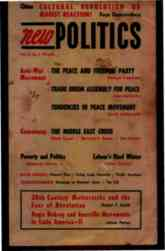
Making It, by Norman Podhoretz, Random House, New York, 1967. 360 pp. $6.95.
Tynan Left and Right by Kenneth Tynan, Atheneum, New York, 1967. 479 pp. $8.95.
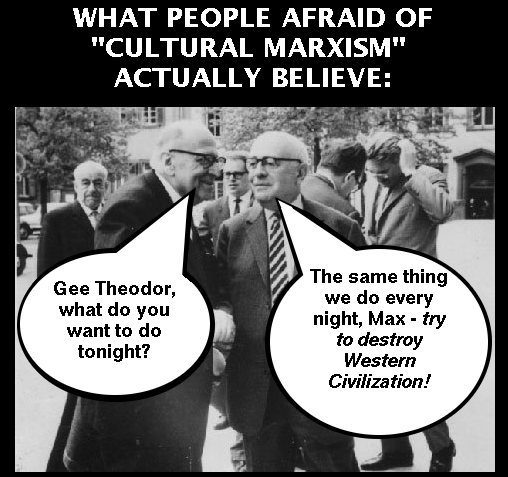
Conservatives today have been deeply critical of what is often called postmodernism. They have associated it with identity politics, political correctness, social justice warriors, relativistic “cultural Marxism” and a host of other evils. For some conservatives, post-modernism is signifies everything that is wrong with contemporary society. University of Toronto Professor Jordan Peterson has characterized it as “dangerous” and “radical” and dismissed important authors like Derrida as “charlatans.” The National Security Council has claimed that “postmodern cultural Marxism” (whatever that means) mobilizes opposition to Donald Trump. And right wing commentator Ben Shapiro has characterized Barack Obama the first “postmodern” President.
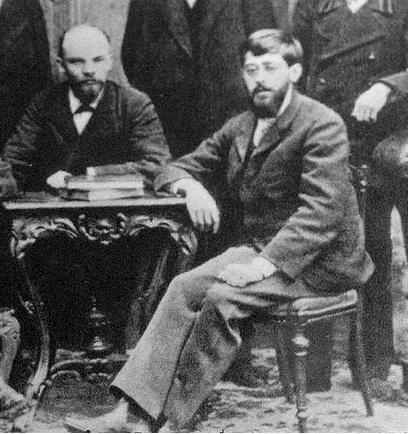
The greatest flaw of Mitchell Cohen’s “What Lenin’s Critics Got Right” in the most recent Dissent is that it repeats what Lars T. Lih, independent researcher and author of Lenin Rediscovered:‘What Is To Be Done’ In Context (Haymarket, 2008) and a biography of Lenin (Reaktion Books, 2011), calls the “standard textbook interpretation” of Lenin’s thought and, by extension, Bolshevism as a movement.

What does it mean to celebrate and concretize for today Marx’s greatest work, Capital, Vol. I? Such a discussion is terribly important at this juncture, when we are in a new situation where even some sectors of the right have started to attack neoliberalism. The Brexit vote in the UK, the large vote for Le Pen in France despite her eventual defeat by a neoliberal candidate, and above all, the Trump campaign have placed on the agenda a new form of right-wing populism with neofascist overtones that breaks with some key features of neoliberalism, such as free trade pacts, somewhat more open borders, and “humanitarian” intervention. At the same time, Trump as president has put forth an incoherent agenda that contains major continuities with neoliberal austerity and old-style militarism, above all in the attempt to gut Obamacare.
 In recent years, Rosa Luxemburg’s name has gradually become more prominent in Chinese academia. A number of influential academic journals have even opened up research columns paying tribute to the revolutionary theorist, nearly a century after the first discussion of her work in China. This should be regarded as a second revival of the research on her in China. Compared with the other leading figures in the history of the international communist movement, whether worldwide or just in China, the present "Rediscover Luxemburg" phenomenon is unique. Regarding other leading figures, there have not been so many ups and downs.
In recent years, Rosa Luxemburg’s name has gradually become more prominent in Chinese academia. A number of influential academic journals have even opened up research columns paying tribute to the revolutionary theorist, nearly a century after the first discussion of her work in China. This should be regarded as a second revival of the research on her in China. Compared with the other leading figures in the history of the international communist movement, whether worldwide or just in China, the present "Rediscover Luxemburg" phenomenon is unique. Regarding other leading figures, there have not been so many ups and downs.

Eighty years after his death, Antonio Gramsci is among the most influential Marxist intellectuals across the board. By the end of World War II, liberal intellectuals had already found in him “a Marxist you can take home to Mother.” The tone was set by Benedetto Croce, who allegedly gushed in 1947, upon reading Gramsci’s Prison Notebooks, “He’s one of us!”1 It reached the point that the Sardinian activist can be presented today as no less than the guarantor of “Italian Democracy.”2

The Occupy movement and the Bernie Sanders campaign spotlighted once again the fact that a fairly small number of very rich people dominate the major economic and political institutions of the country.

Marking an anniversary of a book’s publication is, appropriately, reserved for books that were widely read when they first appeared many years ago. Books we commemorate with an anniversary are ones that ushered in a new way of thinking and influenced the way society tries to make sense of the world. Martin Luther King Jr.’s last book, Where Do We Go from Here: Chaos or Community did neither of these things.

















 In recent years, Rosa Luxemburg’s name has gradually become more prominent in Chinese academia. A number of influential academic journals have even opened up research columns paying tribute to the revolutionary theorist, nearly a century after the first discussion of her work in China. This should be regarded as a second revival of the research on her in China. Compared with the other leading figures in the history of the international communist movement, whether worldwide or just in China, the present "Rediscover Luxemburg" phenomenon is unique. Regarding other leading figures, there have not been so many ups and downs.
In recent years, Rosa Luxemburg’s name has gradually become more prominent in Chinese academia. A number of influential academic journals have even opened up research columns paying tribute to the revolutionary theorist, nearly a century after the first discussion of her work in China. This should be regarded as a second revival of the research on her in China. Compared with the other leading figures in the history of the international communist movement, whether worldwide or just in China, the present "Rediscover Luxemburg" phenomenon is unique. Regarding other leading figures, there have not been so many ups and downs.

